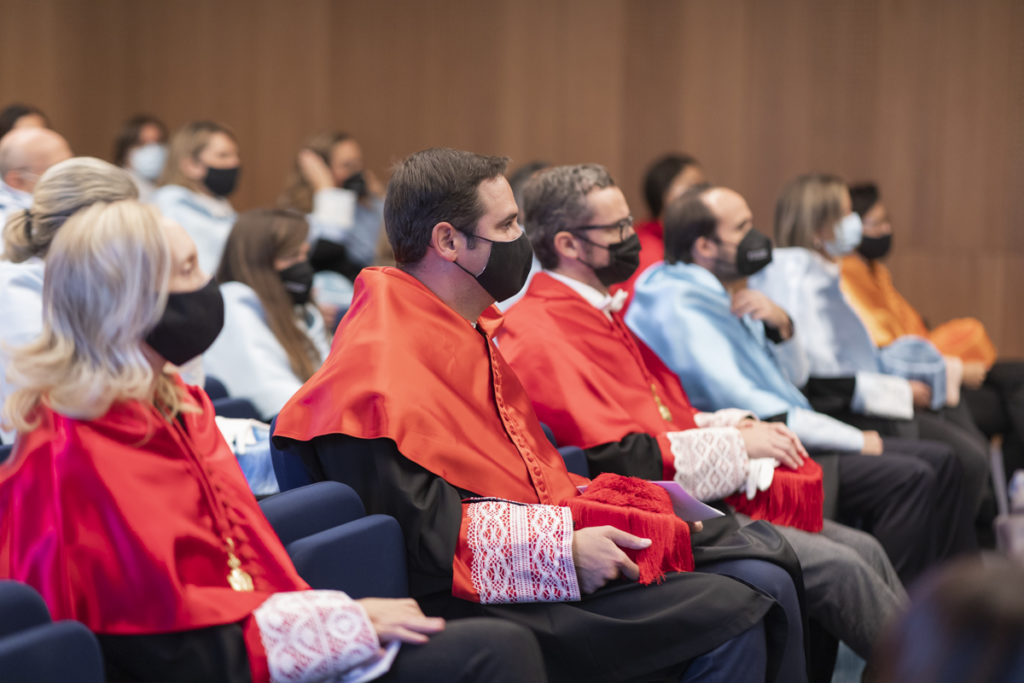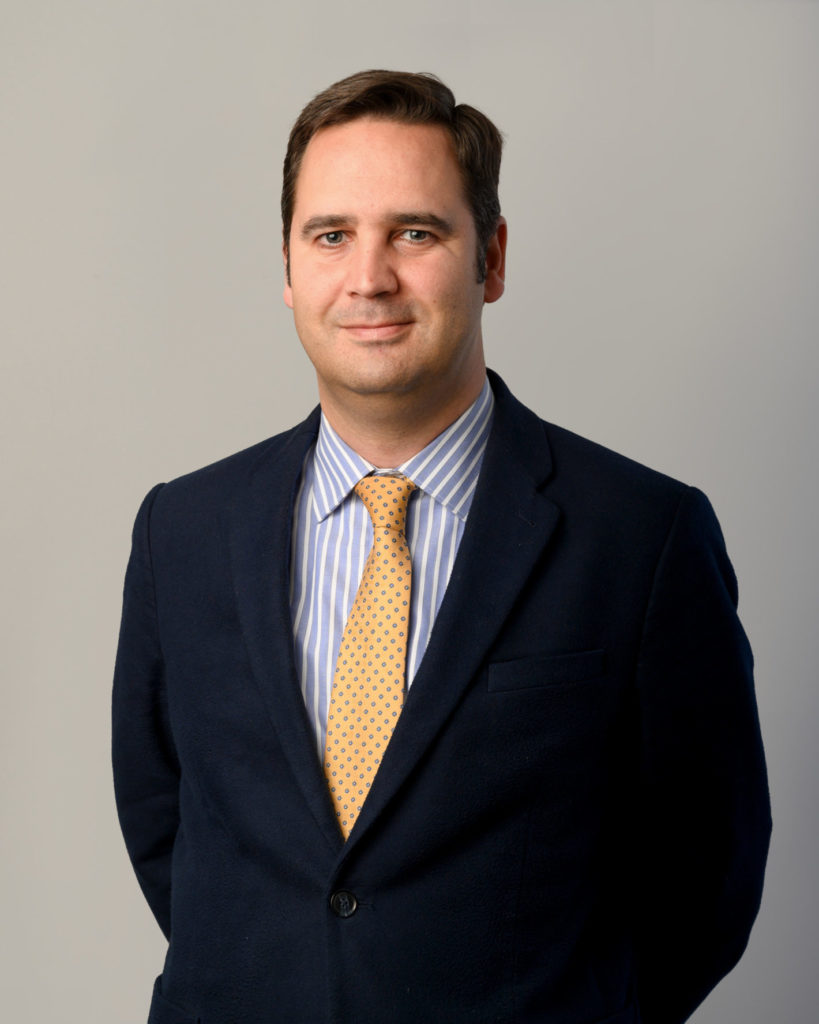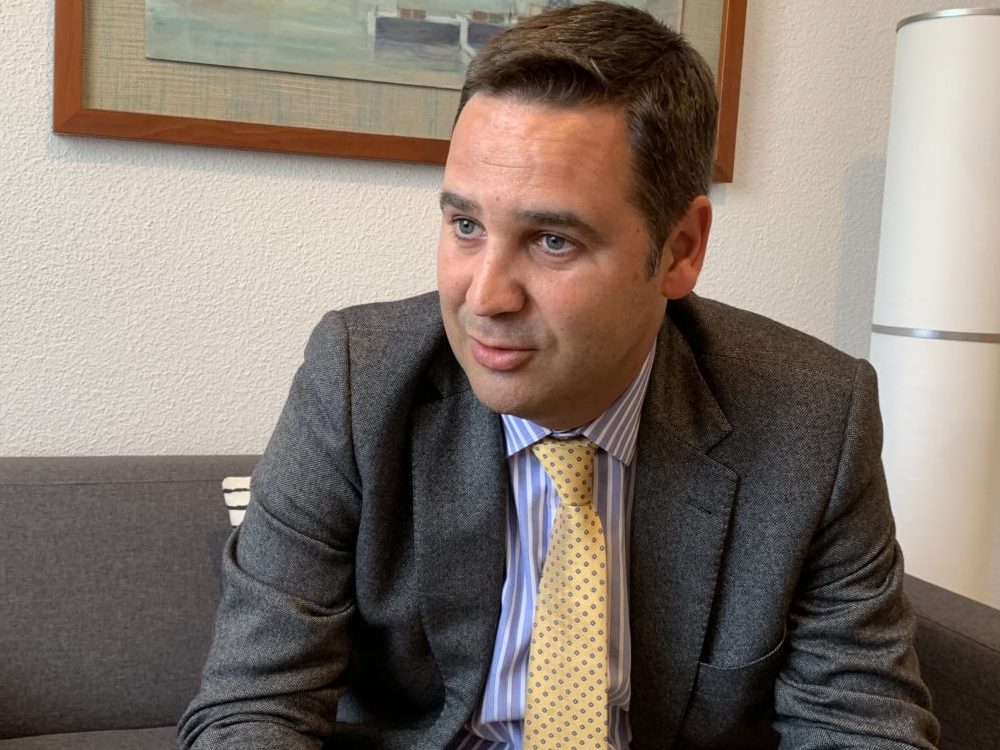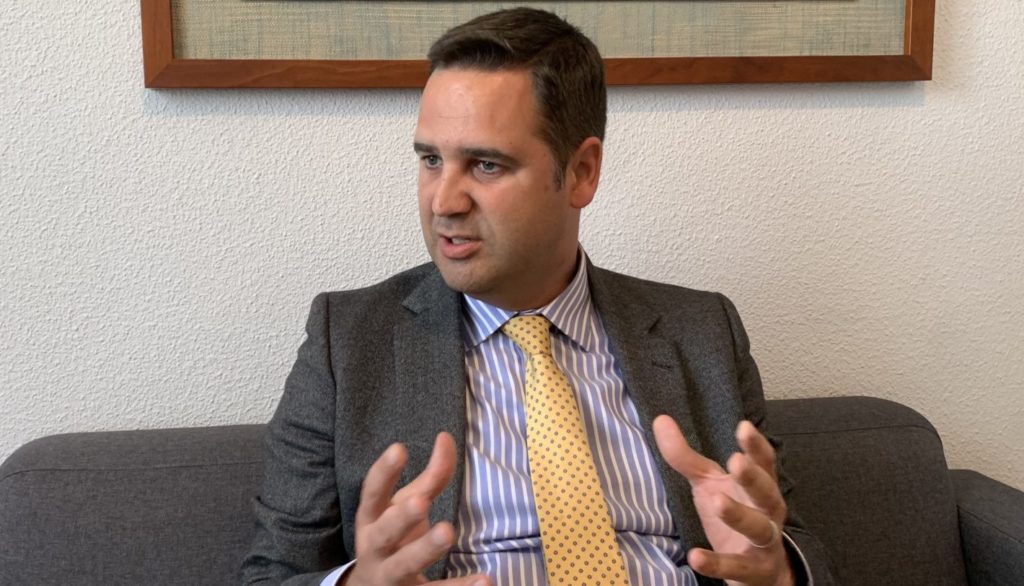It seems to him that we are at a very opportune moment to try to turn around the decadence that Western education has been dragging along in recent decades. This requires courage and enthusiasm, without fear of going against the current in a society that is already tired of being fooled by four clichés that do not stand up to calm reflection. The new generations are more aware of the situation than many think. In fact, they are eager to educate themselves in order not to be manipulated by the Big brother on duty.
The speaker is Santiago Leyra-Curiá (Madrid, 1980), coordinator of the Core Curriculum for the Villanueva University of MadridProfessor Leyra-Curiá is a corresponding member of the Royal Academy of Jurisprudence and Legislation of Spain and Professor of Information Law at the University. Professor Leyra-Curiá is one of the people determined to take advantage of the current situation to learn from past mistakes and help the new students who are now arriving at the University to acquire a solid formation that will allow them to form their own opinions and participate constructively in the great issues of contemporary debate.
He has just returned from the annual congress organized by the Association for Core Texts and Courses (ACTC) in the University of Notre DameThis course, in which professors from American and European universities with Core Curriculum programs are participating, was organized by Professor Leyra-Curiá. In addition, Professor Leyra-Curiá has organized this course at the Universidad Villanueva de Madrid, in collaboration with the Spanish Association of Personalism, the congress "Engendering Beauty: the person in art and creativity"."which concluded with the inauguration of a pictorial exhibition of Joaquín Planell's work..

In times of crisis of reason, the beauty of art can be a good way to recover the moral north in a society that is already looking for different ways out of its current situation of existential perplexity. As Dostoiesvsky says in "The Brothers Karamazov", beauty will save the world and it seems that he was referring to moral beauty, to the Good and to good people, in short. It is an example of the actions that are developed to provide students with intellectual and moral resources to develop their full potential.
As the rector of the Universidad Villanueva de Madrid, José María Ortiz Ibartz, said at the first opening ceremony of the academic year as a private university: "In a university, we should not think only in terms of opportunities for those who know how to take advantage of new scenarios. It is true that disorder, volatility, randomness and uncertainty can generate more benefits than losses for someone. But the main contribution of a University is oriented towards building a new civilization, because it thinks about the common good: in generating the conditions for the possibility of better goods for all, and not only for a few who are able to adequately read the nature of events while the rest remain stunned trying to explain why such highly improbable events have occurred".
Santiago Leyra-Curiá talks about these and other current issues in this interview.
Professor, briefly, how would you introduce yourself?
- I studied Law at the Complutense University of Madrid and I am passionate about Philosophy and Spiritual Sciences in general.
I work as coordinator of the Core Curriculum at Villanueva University in Madrid, where I also teach Information Law to communication students.

A few months ago I published a book on "Political participation and the right to conscientious objection to abortion" and another on "Pluralism and freedom of expression, information and thought" is about to be published. I have always been interested in the trajectory of citizen movements in favor of human rights.
What is the Core Curriculum?
- As he explained Professor Jose María Torralba in this same magazineThe Core Curriculum is the humanistic training aimed at students of any degree program at the university. It is a simple and brilliant idea that does not reserve humanistic knowledge for a small and dwindling elite, but rather argues that humanistic education is the backbone of any university education that claims to be one. If we want a more humane society, we need more humanistic education.
Through a few cross-cutting subjects taken by all students at the University, we try to provide them with intellectual resources so that they stop to think and read about the great questions of mankind, beyond the price of gasoline and electricity, which are also relevant issues, of course.
For example, we are all now moved by the war of invasion of Ukraine started by Russia. If we had a good humanistic education, we would know the history of these two countries in the last centuries, we would know how to distinguish Putin from the Russian people and the great cultural contributions that Russia has made throughout history without demonizing now everything Russian as is being done in many places. We would also be able to distinguish the different versions of the conflict that are reaching us without being left only with what one side tells us, even if it is the side that is suffering most unjustly and with which we all spontaneously empathize.
"If we had a good humanistic education, we would be able to distinguish the different versions that come to us from the conflict in Ukraine."
Santiago Leyra-CuriáVillanueva University Core Curriculum Coordinator
What specific subjects are taught?
- These are subjects such as Personal Leadership, Culture and Civilizations, Anthropology, Creativity and Artistic Experience, Information Society and Ethics and Deontology. Through presentations and debates in class, we try to help students acquire a culture and knowledge of the main sciences of the spirit, to stop and think about what their opinion is on major current issues, to value the part of reason that those who do not think like them have, to dare to defend what they think without fear of being in the minority as long as they do it peacefully and with respect for those who do not think like them, etc.
Another key element is the seminars on the transforming power of music, integral ecology or leadership, given by experts who know how to transmit with their experience the humanistic way of dealing with these issues.
Which of these seminars could you highlight?
- Leadership seminars, for example, are attended by real leaders from different areas of society who show how it is worthwhile to step out of the comfort zone to enter professions with the greatest social impact and to face the difficulties that are never lacking with optimism.
The Great Books seminars, which already exist in other universities in Europe and the Americas, aim to encourage students to read the great works of world literature as a concrete way of acquiring some of the wisdom conveyed by these literary treasures. The Odyssey, The Divine Comedy, Les Miserables, Moby Dick, Woman in Red on a Gray Background, are the titles that we have discussed with the students this year. In addition, each Core subject requires critical reading of a classic work related to the subject.

Finally, the students' presentations at the end of the course, in which they themselves prepare an intervention before their classmates on one of the major topics covered in the course, seem to us to be useful for them to learn to speak fluently about these topics without fear of addressing conflictive issues, which are often the most interesting ones to deal with. We cannot accept that with friends we can only talk about trivialities to avoid hurting sensitivities. As long as it is done with respect and affection, it is possible to talk civilly about any issue and even learn from others in these conversations.
"We cannot accept that with friends you can only talk about trivialities to avoid hurting sensitivities. As long as it is done from respect and affection, you can talk civilly about any issue and even learn from others in these conversations."
Santiago Leyra-CuriáVillanueva University Core Curriculum Coordinator
How would you summarize, in a few words, the objective of the project?
- In short, it is a question of the University serving the purpose for which it was created: to help students to form themselves, to acquire a good culture, to help them to think, without fear of seeking the truth, even if sometimes that truth is uncomfortable for us and makes us change our opinions or lifestyles. I notice in today's students a hunger to be able to form an informed opinion about what they really want for their lives, without having to be subject to fashions or to what the new contemporary inquisitions establish, and that seems to me to be an invitation to optimism.









